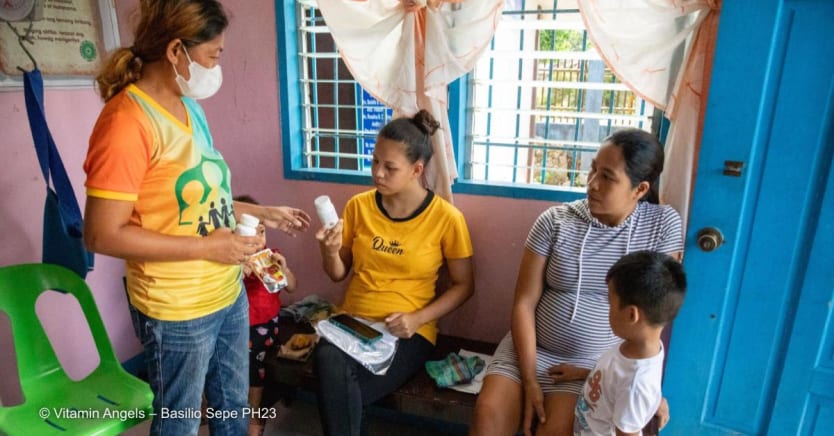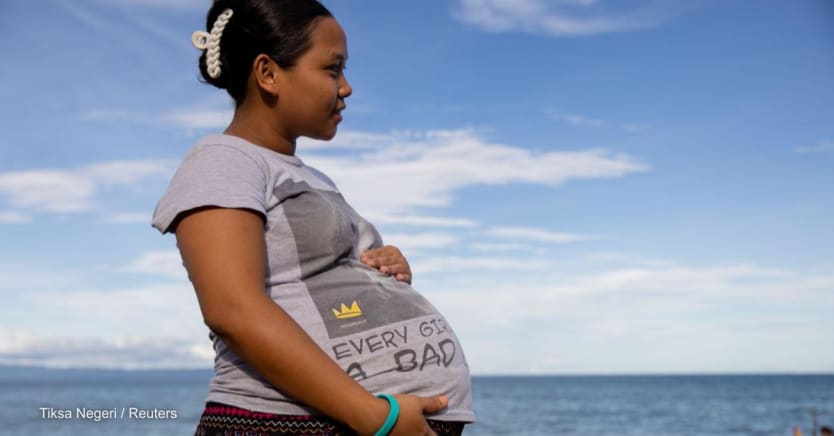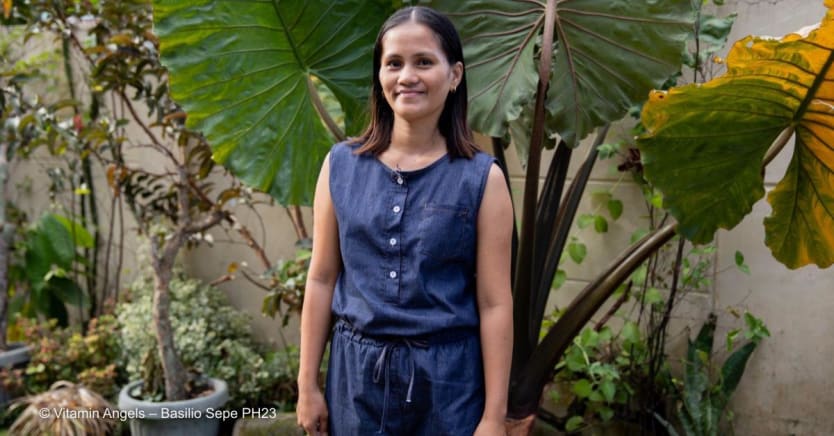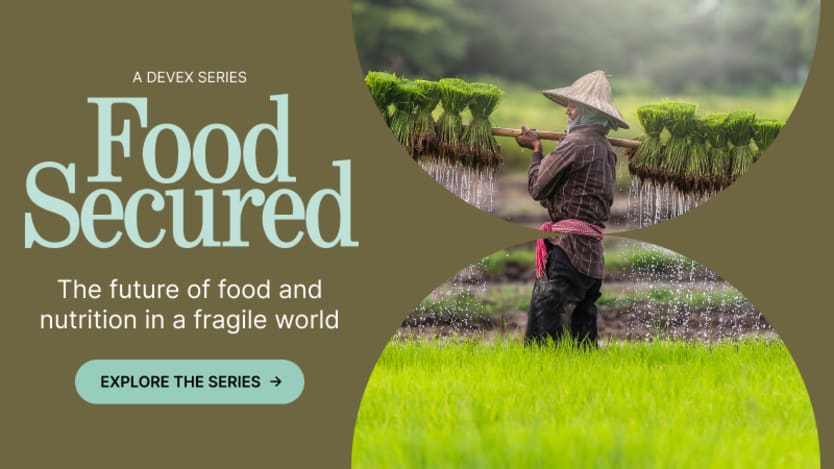
In Tanauan, Philippines, Maridel is 30 years old and pregnant with her fifth child. For her last two pregnancies, she is grateful to have received Vitamin Angels’ United Nations International Multiple Micronutrient Antenatal Preparation Multiple Micronutrient Supplements, or UNIMMAP MMS, also known as prenatal vitamins and minerals, through her local clinic.
Maridel shared that her diet mainly consists of hotdogs and eggs from the local sari-sari store, a Filipino neighborhood variety store that typically does not carry perishable foods due to lack of refrigeration.
Although Maridel has limited access to the essential vitamins and minerals found in fresh fruits and vegetables, because she is receiving MMS, she and her baby are more likely to have a healthier pregnancy and birth.
Intergenerational impact
Globally, one billion women of reproductive age in low- and middle- income countries do not receive adequate nutrition through diet alone. This is especially problematic given that pregnancy can significantly increase the required daily intake of several key vitamins and minerals.
Malnourished mothers give birth to malnourished children, creating an intergenerational cycle that impacts health and economic wellbeing that is felt across communities and generations.
Additionally, undernourished women are more likely to develop serious complications during pregnancy and childbirth. For example, anemia — caused by iron deficiency — affects pregnant women globally and can have negative health outcomes for both mother and child.

Currently, the World Health Organization recommends that pregnant women in LMICs receive just two nutrients, iron and folic acid, or IFA. However, compared to IFA, evidence shows that UNIMMAP MMS can further reduce the risk of babies born at a low birthweight, babies who are deemed small for gestational age, pre-term births, and stillbirths.
These benefits are even greater if the mothers are anemic or underweight. MMS has also been recognized as one of the 12 best investments for global development by leading international economists, with an estimated return of $37 for each dollar spent. In 2021, UNIMMAP MMS was included in WHO’s Essential Medicine List, within the context of rigorous research, recognizing it as a proven, cost-effective, and safe way to meet the specific micronutrient requirements of pregnancy.
Persistent barriers
Despite global guidance supporting MMS, millions of women in LMICs do not have access to prenatal vitamins and minerals. The reasons for this are complex and vary by country, region, and even community. Barriers to access involve a diverse set of factors ranging from cultural considerations to health care and government policy to matters of supply.
In Indonesia, for example, women are often not using prenatal supplements due to lack of encouragement or counseling from her health care providers — due to short appointment times, or a limited supply of supplements. Additionally, health care providers are overburdened, often have limited knowledge, and some have negative perceptions about prenatal supplements, which means they don’t always prescribe or counsel women appropriately.
In the case of Indonesia, as with other LMICs, health care practitioners are not to blame. The providers offering antenatal care in many LMICs are often working within systems where education, resources, policies, products, and health equity are lacking.
Addressing these barriers and implementing sustainable change in LMICs requires significant collaboration across various sectors.
Improving access
In Indonesia, Vitamin Angels has been working alongside the government, academic institutions, and local community partners to conduct research further exploring the context specific barriers women face to accessing MMS, using a scientific framework.
Indonesia’s government officials, policymakers, researchers, and community care providers are working with us to identify solutions that will help provide a more welcoming environment for pregnant women to take MMS.
For example, together we are working to implement improved counseling so that health care providers, pregnant women, and their families have critical educational materials, as well as improved monitoring and evaluation systems to strengthen reporting and training. We are also working to enhance packaging using right fit language and imagery to improve the appeal of MMS.
In addition to rigorous research and a collaborative approach, another key aspect of this work involves finding and securing sustainable funding. Private sector organizations play a transformative role.
Private sector collaboration
Since 2021, Bayer and Vitamin Angels have collaborated as part of Bayer’s Nutrient Gap Initiative to expand access to prenatal vitamins and minerals to 4 million pregnant women in need annually.
This collaboration has also supported research projects and MMS programs around the world. Involvement from the private sector helps to address country-specific barriers to accessing MMS and build a welcoming environment for sustainable change.
Although each community we serve requires a context-specific approach, there is a commonality that unites each one: the universal desire of a mother for her child to have a life full of health and possibility.

As a soon-to-be mother of five, Maridel told us that her greatest joy is seeing her children healthy. She wants them to have a future filled with opportunities, grow big and strong, thrive in school, achieve greatness as adults, and have healthy children of their own with more possibilities than she was able to provide.
It is clear that understanding the context-specific barriers to MMS can enable a better life and future not only for pregnant women, but for their children, their family, their community, and for generations to come.
Vitamin Angels is working to reduce maternal, infant, and child malnutrition and health inequity by ensuring those who are underserved have access to the essential nutrients they need. To learn more about our work, visit www.vitaminangels.org.
Visit Food Secured —a series that explores how to save the food system and where experts share groundbreaking solutions for a sustainable and resilient future.
This content is sponsored as part of our Food Secured series, which is funded by partners. To learn more about this series and our partners, click here.









